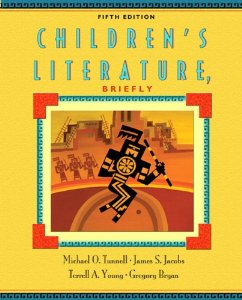It is an indisputable fact that a child’s engagement with good books
is important and valuable to her development. Not only can reading high
quality children’s literature expand a child’s cognitive abilities, but
it can also spur a child’s emotional, moral, and spiritual development.
However, with one visit a major online or storefront book outlets, it
becomes exceedingly clear that there are zillions of children’s books. Some of these books are good, but many are not.
 So, if you are looking to buy children’s books, you are left with a question: “How do I choose the best children’s books?”
So, if you are looking to buy children’s books, you are left with a question: “How do I choose the best children’s books?”
In this video, Diane Dignan answers the question, “How Do I Choose the Best Children’s Books to Read with My Child?”
She is the author of the award winning book, Bartholomew’s Gift, and
writes stories with morals and positive uplifting tales for children and
adults.
From Children’s Literature, Briefly, by Michael Tunnell, James Jacobs, Terrell Young, and Gregory Bryan, come these tips for young children:
 So, if you are looking to buy children’s books, you are left with a question: “How do I choose the best children’s books?”
So, if you are looking to buy children’s books, you are left with a question: “How do I choose the best children’s books?”From Children’s Literature, Briefly, by Michael Tunnell, James Jacobs, Terrell Young, and Gregory Bryan, come these tips for young children:
All adults choose children’s books according to some kind of standard, even though we may be unaware of exactly why we pick one book over another. Our first responsibility when selecting books, then, is to determine what guides our choices.
For instance:
1. The lessons they teach. We want children to learn the correct lessons about life. If a book teaches what we want taught, we call it a good book.For older children, Cynthia Leitich Smith said:
2. Large, colorful illustrations. Young eyes need stimulation, and color provides it better than black and white. Also, the pictures need to be large enough for children to see clearly.
3. Absence of harshness. Children will run into difficulty soon enough. Let them enjoy childhood. Protect them from the tough side of life as long as possible.
4. Absence of scariness. We don’t want to invite fears or nightmares.
5. Absence of swearing. We don’t want books to model inappropriate behavior.
6. Short. Keep the reading easy.
7. Simple vocabulary. We don’t want to frustrate or overpower children.
8. Familiar content. We think our child will respond to a book about zoos because we go to one often. If a book connects with a child’s experience, it will be a better book.
9. Personal and/or social preference. We want the values and social views represented in the book to be what we consider appropriate.
A good book should be the best book it can be A children’s novel must do all that an adult novel does, but the hero and sensibility is that of a younger person. They are generally a bit leaner, though, less self-indulgent on the part of the author. The audience tends to have a shorter attention span. No kid reads a book because of what the New York Times has to say. To them, it must sing. Basically, a good book should be the best book it can be, in whatever manifestation fits best for its unique nature. Effective aspects The target audience should be able to identify with the protagonist, who may share similar characteristics such as age.The Joy of Children’s Literature, by Denise Johnson offers this summary:
• The theme appropriately reflects the emotions and experiences of children today.“There are many little ways to enlarge your child’s world. Love of books is the best of all.” — Jacqueline KennedyPlease share your methods for choosing high quality children’s literature.
• The language is not convoluted but rather specific and clear.
• The literary elements consist of a believable plot and characters, an engaging
writing style, and a theme that unite into a satisfying whole.
• The book doesn’t blatantly teach or moralize and tells the truth about the human
experience.
• The book broadens understanding and perspective on the world that open up new
possibilities and the capacity for empathy.
• Books for younger children include engaging pictures, fast-paced action that is
presented in a straightforward manner, a single setting, and a satisfying ending.
• Books for older readers may not include pictures and therefore may include more
descriptions to assist readers with visualizing the characters, setting, and dialogue
to provide insight into characters’ motives and intentions. The stories convey ideas
that are important and meaningful and have a satisfying ending.
Comments